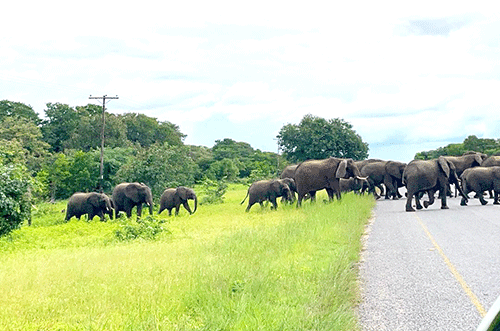GABORONE – Botswana is spearheading the call to stop a UK bill banning the import of trophy hunting, citing severe impacts including the communities dependent on the income of management of hunting in Africa.
The Botswana Wildlife Producers Association (BWPA) stated that the government’s current policy of sustainable use through hunting has proven to be successful by maintaining many wildlife management areas and supporting rural communities whose livelihoods depend on safari hunting income.
The British government early this month announced plans to ban the importing of hunting trophies, as part of a conservation initiative to protect endangered animals through the Hunting Trophies (Import Prohibition) Bill.
“Although Botswana does not export a lot of trophies to the UK, this ban will have dire consequences and the possibility of other countries adopting the bill is equally high. This is an industry that contributes about BWP4.5 billion, employing more than 3 000 people,” said Leonard Matenje, chairman of BWPA during an engagement with SADC media on Thursday.
He indicated that a ban on the import of trophies into the UK will have a systemic effect on the viability of the hunting industry in many other countries, including neighbouring countries.
He added that the Masisi administration reinstated hunting as a conservation tool
to empower communities.
“Hunting income provides incentives to communities to co-exist with the wildlife around them,” said Matenje.
Botswana’s tourism minister Dumezweni Meshack Mthimkhulu said the livelihoods
of Africans who practice trophy hunting
will be heavily impacted by the passing of the bill.
“As a government, we are concerned about developments in the west because the primary income source of some Batswana and as a nation at large is through trophy,” he said.
Mtimkhulu stated that they have engaged countries like Namibia, South Africa, Zambia, and Zimbabwe to find out ways how this bill can affect the tourism and environment sector.
“The impact this trophy hunting will have in Botswana will trickle down to other countries. Namibia, Zambia, Zimbabwe, and others. All of those SADCs who have industries in trophy hunting will be impacted,” said the minister.
Botswana’s deputy permanent secretary in the line ministry Cyril Taolo noted that Botswana has a track record second to none when it comes to the conservation of biodiversity. “We are known and renowned for looking after our wildlife but we need to understand that the effort to conserve our wildlife comes at the expense of other developmental imperatives,” he said.
He said the protection of wildlife is not done in a vacuum and that resources are required to protect and conserve the wildlife, adding that the wildlife in areas of the country should contribute to the livelihoods of the people and the broader economy of the country.
Botswana is known to be one of the African countries with the highest number of elephants exceeding 50 000.
-psiririka@nepc.com.na


